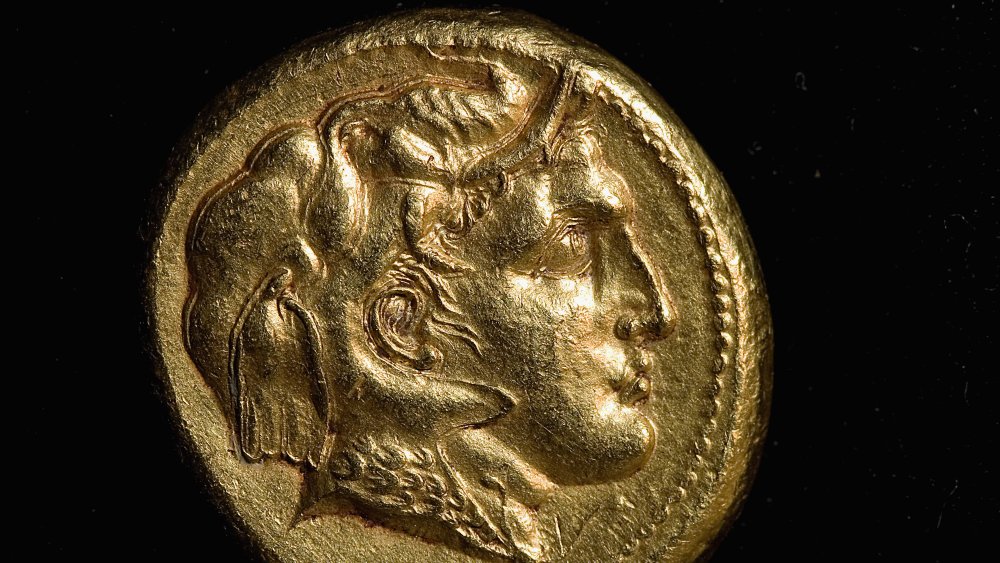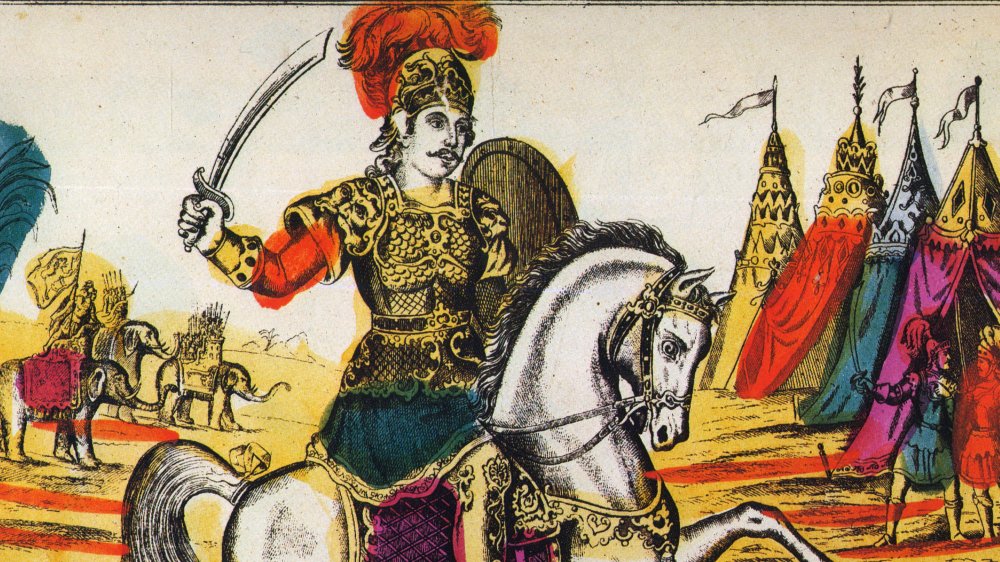Myths About Alexander The Great You Can Stop Believing
Alexander the Great, who turned half the world into his empire, seems like an almost god-like figure. Rumors about him, first encouraged to further his legend, continue to persist. By the time of Alexander's death, he'd managed to convince some people — including himself — that he was the son of the Greek god Zeus. Which is definitely not true, since according to the Ancient History Encyclopedia, he was the son of Philip II of Macedonia.
There are wild stories that are true, though. For example, historians agree Alexander so loved his horse Bucephalus that he named a city after him, writes the University of Colorado.
On the other hand, one of the many myths surrounding Alexander the Great is that he wasn't Greek. Technically, Alexander was Macedonian, but at the time of his birth, Macedonia was the seat of the Hellenistic Empire, per Encyclopedia Britannica. His father — the real one, not Zeus — conquered mainland Greece, and Alexander himself believed in the many gods of Greek mythology. He considered Zeus to be the father of all mankind, and with his old tutor, the philosopher Aristotle, as his guide, Alexander maintained that Greek culture and religion were superior above all others. So, while he tolerated the customs of the people he conquered, he still held in high regard the ancient Greek gods, which explains why he slept with a copy of the Iliad, and assumed he was a descendant of godly lineage.
He did not die in a blaze of glory fighting elephants
Despite being such a well-regarded military strategist, many people falsely believe Alexander was killed in battle. While it is true that he died after a skirmish to invade Arabia in 323 B.C., History says his death was not related to a fight. Historians are still arguing what exactly killed him, but many agree it was either an illness or a poisoning. Science Daily reports Alexander suffered from chills and fever in the week before his death.
Alexander's death left a void in his empire. It is true that he never named a successor. This left his generals to fight among themselves, to gain control of his many lands. His empire was divided among his four generals, according to the Ancient History Encyclopedia, as Lysimachus took Thrace and much of Asia Minor, Cassander controlled Macedonia and Greece, Seleucus I Nicator ruled Mesopotamia, Persia and parts of India, while Ptolemy I established the Ptolemaic Dynasty in Egypt until his descendant Cleopatra (yes that Cleopatra) died.
So Alexander the Great may have encouraged a lot of the legends surrounding himself, since they made him look superior to the people he ruled. However, since so much of what we know about his life came from the writings of philosophers and historians after his death, myths will always surround him. Besides, he'd like all these stories about him — after all, he was the sort of guy who wanted to rule the entire world.

